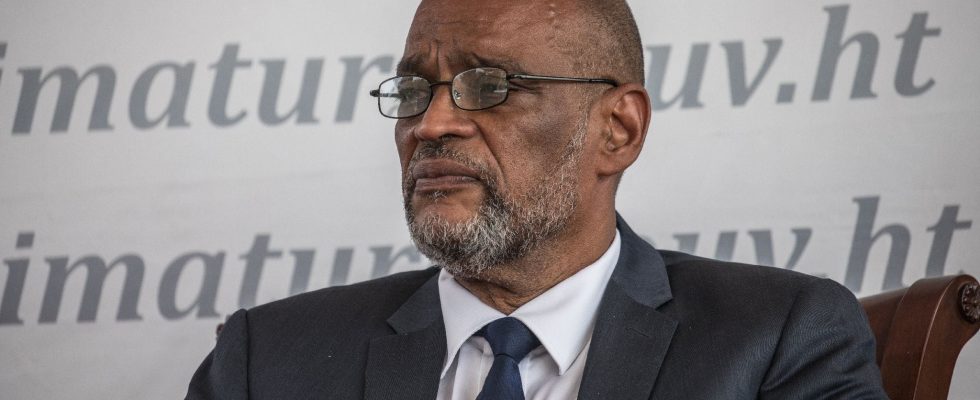The security situation is far from having improved in recent days. It is in this context that Haitian Prime Minister Ariel Henry, challenged and faced with a wave of gang violence in his country, resigned on Monday March 11, announced the president of the Caribbean Community (Caricom) and an official American. “We note the resignation of Prime Minister Ariel Henry,” said Mohamed Irfaan Ali, president of Guyana and Caricom, at a press conference following a meeting in Jamaica on the crisis in Haiti.
He said he was “happy” to announce “a transitional governance agreement paving the way for a peaceful transition of power, continuity of governance, a short-term security action plan and free and fair elections.
An emergency meeting in Jamaica
The Caribbean countries met urgently on Monday in Jamaica, at the initiative of Caricom, with representatives of the UN and several countries, including France and the United States, to try to move forward on a solution in Haiti. Port-au-Prince continued this weekend to descend into violence linked to gangs who demanded the resignation of Ariel Henry, just like part of the population.
Blocked on the American territory of Puerto Rico after being prevented from returning to the Haitian capital, Ariel Henry spoke remotely with members of Caricom during the meeting. Ariel Henry confirmed his resignation during a telephone exchange Monday with Secretary of State Antony Blinken, who was in Jamaica, according to a US official. He is welcome to stay in Puerto Rico, the official added.
Without a president or parliament – the last head of state, Jovenel Moïse, was assassinated in 2021 – Haiti has not had an election since 2016. Ariel Henry, appointed by Jovenel Moïse, should have left office at the beginning of February. In early March, he signed an agreement in Nairobi to allow the sending of Kenyan police officers to Haiti and had since sought to return to his country. The President of Guyana warned a few days ago that Caricom intended to help restore “stability and normality” in Haiti, describing the situation there as “desperate”.
State of emergency and curfew
The Haitian capital is the scene of clashes between police and armed gangs, who attack strategic sites such as the presidential palace, police stations and prisons. The latest sign of the security crisis is the evacuation on Monday of all European Union personnel present in Haiti. During the night from Saturday to Sunday, the Americans evacuated their non-essential diplomatic personnel by helicopter.
The Haitian authorities declared a state of emergency a week ago, accompanied by a nighttime curfew, in the West department, which includes the capital, but they do not fully control this territory. This curfew was extended Monday until Thursday, according to a press release from the authorities.
According to several diplomats, the Kingston meeting was intended to formalize a proposal to Ariel Henry, so that he cedes power to a transitional council comprising a broad panel of Haitian civil society.
On Monday, the UN Security Council called on all Haitian political actors to “serious negotiations” to “restore the democratic institutions” of the country. The head of American diplomacy Antony Blinken announced after the meeting in Jamaica that the United States would provide an additional 133 million dollars to resolve the crisis, including 100 million for the multinational force to be sent to Haiti, and 33 million in aid humanitarian. Canadian Prime Minister Justin Trudeau, present virtually during the discussions, had shortly before offered some 91 million dollars.
